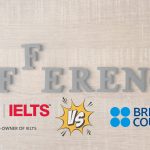Below are the sample questions and answers for IELTS Speaking Part 1 Introduction: ‘Advertisement’. Each answer by Voxcel is written on Band 9 parameters. Click here to read how to structure your answers in your IELTS speaking test.
Each Topic of Part 1 covers questions of different types, including different tenses, to help you practice in the best way possible.
IELTS SPEAKING TOPICS PART 1 – ADVERTISEMENT
- Do you enjoy watching advertisements on TV or online?
Answer: To be honest, I don’t really enjoy them. I usually skip over ads whenever possible. However, some creative ones can catch my attention, especially if they’re funny or visually stunning. Still, most of the time, they feel like a waste of time.
- What type of advertisement do you find most effective? Why?
Answer: I think emotional storytelling is the most effective. For example, ads that tug at your heartstrings or inspire you tend to stick in your mind longer. They create a connection with the audience, which makes the message more impactful. It’s all about striking a chord with viewers.
- Have you ever bought something because of an advertisement? What was it?
Answer: Yes, I once purchased a fitness tracker after seeing an ad that highlighted its features. The ad made it look so sleek and practical that I couldn’t resist. Looking back, I’m glad I did because it’s been incredibly useful for tracking my workouts.
- How do advertisements influence people’s choices?
Answer: Advertisements play a huge role in shaping consumer behavior. For instance, they often highlight benefits or create a sense of urgency, convincing people to buy things they might not have considered otherwise. Sometimes, they even make us believe we need something we didn’t know we wanted.
- Do you think there are too many advertisements nowadays? Why or why not?
Answer: Absolutely! It feels like everywhere you turn, there’s another ad, like on social media, websites and even apps. While they’re meant to inform, they can become overwhelming and intrusive. In fact, sometimes I feel bombarded by them, which makes me tune out completely.
- Would you prefer traditional ads or digital ones? Why?
Answer: Personally, I’d prefer digital ads because they’re more targeted and relevant to my interests. Traditional ads, like billboards or TV commercials, can feel generic and outdated. That said, I still appreciate the nostalgia of classic print ads, they have their charm.
- Can you recall a memorable advertisement you’ve seen recently?
Answer: Recently, I saw an ad for a travel agency that featured breathtaking footage of exotic destinations. The visuals were stunning, and the tagline, “Your next adventure starts here,” was inspiring. It left such a lasting impression that I immediately started researching trips.
- Do you think advertisements should be regulated more strictly? Why?
Answer: Yes, I believe stricter regulations are necessary, especially for misleading claims or excessive targeting of children. Some ads exaggerate benefits or downplay risks, which can mislead consumers. On top of that, regulating content ensures fairness and transparency.
- Are there any types of advertisements you dislike? Why?
Answer: Pop-up ads are the worst. They disrupt your browsing experience and force you to close them before continuing. I also dislike overly aggressive sales pitches that pressure you into buying something right away. These tactics just feel manipulative and annoying.
- How has advertising changed over the years?
Answer: Advertising has evolved significantly with technology. Decades ago, it relied heavily on print and TV, but now digital platforms dominate. Social media influencers and personalized ads have taken center stage, making marketing more interactive and dynamic. As a result, brands can connect with audiences in innovative ways.
- Do you think celebrities in advertisements make products more appealing?
Answer: Definitely! Celebrities bring credibility and star power to campaigns. When someone famous endorses a product, it instantly grabs attention and builds trust. However, it only works if the celebrity aligns with the brand’s image, otherwise, it can come across as forced or insincere.
- If you could create your own advertisement, what would it promote?
Answer: If I could design an ad, I’d promote eco-friendly products, like reusable water bottles or solar-powered gadgets. The campaign would focus on sustainability and encourage people to make greener choices. After all, protecting the planet is something everyone should care about.
Note: We have written questions and answers for all the IELTS Speaking Topics of Part 1. Click here to assess them. We aim to help the students as much as possible. We have also written IELTS Speaking Cue Cards, including their Part -3 on the scale of Band 9. However, we don’t promote cramming.
All the content on the Voxcel website is solely copyrighted and owned by us. If anyone copies and is found to be stealing, we reserve the right to take a copyright strike or necessary legal action. Feel free to browse our website for sample questions and answers.




